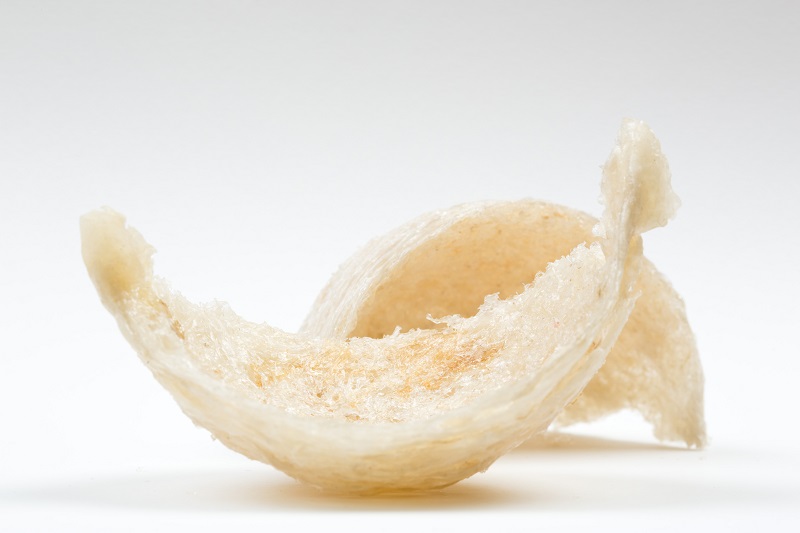
Edible Bird's Nest as a Potent Cognitive Enhancer
You might be surprised to learn that edible bird’s nest, long prized in traditional Asian cuisine, is now attracting attention for its potential to boost brainpower. Packed with unique nutrients like sialic acid and proteins, this delicacy could do more than satisfy a culinary craving—it might actually support memory and learning. The science behind this trend is intriguing, and its benefits could extend well beyond what you'd expect from a typical supplement.
Origins and Nutritional Profile of Edible Bird’s Nest
Edible bird's nest (EBN) has been a valued component of traditional Asian cuisine for centuries, primarily due to its unique origin and nutritional composition.
Constructed mainly from the hardened saliva of swiftlets, these nests require approximately 35 days to complete.
Nutritionally, EBN is notable for its high protein content, constituting over 50% of its weight, and it includes all nine essential amino acids, which are crucial for various bodily functions.
Additionally, it contains sialic acid, a carbohydrate that has been associated with brain development. This has contributed to EBN's reputation as a potential cognitive enhancer.
Among the different types of EBN, red nests are considered the most valuable, often commanding higher market prices due to their scarcity and the belief that they offer enhanced benefits compared to other varieties.
Research Findings on Cognitive Benefits
Edible bird’s nest (EBN) has garnered scientific interest due to its potential effects on brain health. Current research indicates that EBN may improve cognitive functions, particularly in models of cognitive dysfunction.
Maternal supplementation with EBN has been shown to enhance learning and memory in offspring, indicating possible long-term neuroprotective effects. These effects are likely due to EBN’s sialic acid and other bioactive components, which are thought to support hippocampal neurons, reduce neuroinflammation, and boost antioxidant activity.
Studies suggest that EBN may protect against cognitive decline, pointing to its potential role in supporting brain health throughout various life stages.
Key Bioactive Components and Mechanisms of Action
Edible bird's nest (EBN) contains several bioactive components that may contribute to cognitive benefits. One of the main components, sialic acid, is known to support cognitive functions and brain development. The glycoproteins present in EBN, such as lactoferrin and ovotransferrin, have been studied for their neuroprotective effects, particularly their role in reducing oxidative stress.
Research indicates that EBN may enhance synaptic plasticity and facilitate learning and memory, potentially through the upregulation of the ERK-CREB-BDNF signaling pathway. Additionally, the antioxidant properties of EBN are believed to help mitigate neuroinflammation and promote neuronal health, which could prevent cellular damage. These mechanisms suggest that EBN has potential as a therapeutic agent for maintaining and improving cognitive performance.
If you’re curious about trying edible bird’s nest in a simple, ready-to-enjoy form, you might want to check out simply swift by Golden Nest—it’s a convenient option for adding these potential brain-boosting benefits to your daily routine.
Neuroprotective and Antioxidant Effects
Edible bird's nest (EBN) contains bioactive compounds that exhibit neuroprotective and antioxidant properties, potentially supporting cognitive functions.
The presence of sialic acid and specific proteins in EBN may help mitigate oxidative stress and neuroinflammation, which are significant factors affecting cognitive health. These antioxidant properties can reduce harmful markers and enhance beneficial enzymes in the hippocampus.
By influencing synaptic plasticity, EBN might contribute to improvements in learning and memory. Some research indicates that EBN could play a role in delaying neurodegeneration, supporting neuronal survival, and regulating pathways critical to cognitive health.
Incorporating EBN into one's diet may offer benefits for brain resilience and performance, but further studies are needed to fully understand its effects.
Future Prospects and Directions for EBN Research
Future research into Edible Bird's Nest (EBN) for cognitive enhancement must address several critical challenges to advance the field.
Prioritizing standardized methodologies in clinical trials is essential to reliably assess the role of sialic acid, a component of EBN, in neuroprotection and cognitive enhancement.
Investigating EBN's effects on neuroinflammation and oxidative stress could further elucidate its therapeutic potential.
Expanding research to include diverse populations and various dosages will be important for understanding the long-term benefits and optimal use of EBN in managing neurodegenerative conditions.
Conducting rigorous and collaborative studies will help bridge existing knowledge gaps and validate EBN as a potential option for cognitive health, enabling the development of evidence-based recommendations in the future.
Conclusion
If you’re looking to boost your brainpower, edible bird’s nest offers a promising option. Backed by research, its rich proteins and sialic acid support learning and memory while its bioactive compounds help protect your brain from stress and inflammation. As more studies uncover how EBN works, you might consider it a valuable addition to your cognitive health routine. With ongoing research, EBN’s full potential as a cognitive enhancer is just beginning to unfold.

